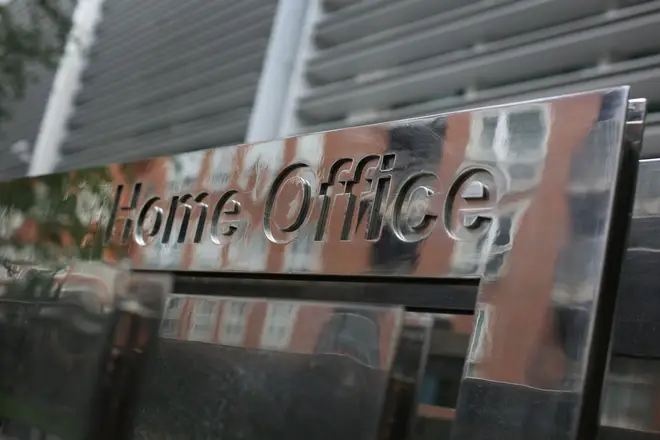
Matt Frei 10am - 12pm
22 July 2020, 14:09

Nearly 200 historians have called on the Home Office to withdraw an element of the UK citizenship test that they say “misrepresents” and “distorts” slavery and the British Empire.
The scholars, including 13 from Oxford University, 20 from Cambridge and 13 British Academy fellows, say the Government’s ‘Life in the UK Test’ is “demonstrably false” in parts.
“People in the colonies and people of colour in the UK are nowhere actors in this official history,” they say, adding it presents the abolition of slavery as a “British achievement, in which enslaved people themselves played no part”.
The test is a compulsory part of the application process for anyone applying for British citizenship or indefinite leave to remain, and costs £50 to sit.

Nick Ferrari's fiery interview with special envoy on Modern Slavery
The 181 historians, all from leading British universities, cite a passage of the handbook accompanying the test that says: “While slavery was illegal within Britain itself, by the 18th century it was a fully established overseas industry”.
Another part of the handbook, drawn up in 2013 and still in use, states: “By the second part of the 20th century, there was, for the most part, an orderly transition from Empire to Commonwealth, with countries being granted their independence.”
In a scathing open letter, the academics demand the history chapter is reviewed “as a matter of urgency” and “formally withdrawn” from the test until it is “corrected and rewritten”.
They respond: “In fact, whether slavery was legal or illegal within Britain was a matter of debate in the eighteenth century, and many people were held as slaves,” citing India and the Mau-Mau uprising in Kenya.
“The handbook is full of dates and numbers but does not give the number of people transported as slaves on British ships (over 3 million); nor does it mention that any of them died.”
READ MORE: Cambridge University says slavery comments by David Starkey 'indefensible'
READ MORE: George Floyd mural in Manchester defaced with racist graffiti

Maajid Nawaz: British Empire Was Brutal But Not Uniquely Evil
They also stress that “decolonisation was not an ‘orderly’ but an often violent process” but that the book is “silent” about colonial protests, uprisings and independence movements and that only one person of colonial origin is named in the book.
“The handbook promotes the misleading view that the Empire came to an end simply because the British decided it was the right thing to do,” the letter goes on.
They add: “For those with a basic knowledge of history, whatever their background, [the test] puts them in the invidious position of being obliged to read, remember and repeat a version of the past which is false.”
“The aim of the official handbook is to promote tolerance and fairness and facilitate integration. In its current version, the historical pages do the opposite,” they add.
A Home Office spokesperson said: “Given the breadth of British history, the Life in the UK handbook provides a starting point to explore our past and help those seeking to live permanently in the UK gain a basic understanding of our society, culture and historical references which occur in everyday conversations.
“We have published several editions of the handbook since it was launched and will continue to keep its contents under review and consider any feedback we receive.”